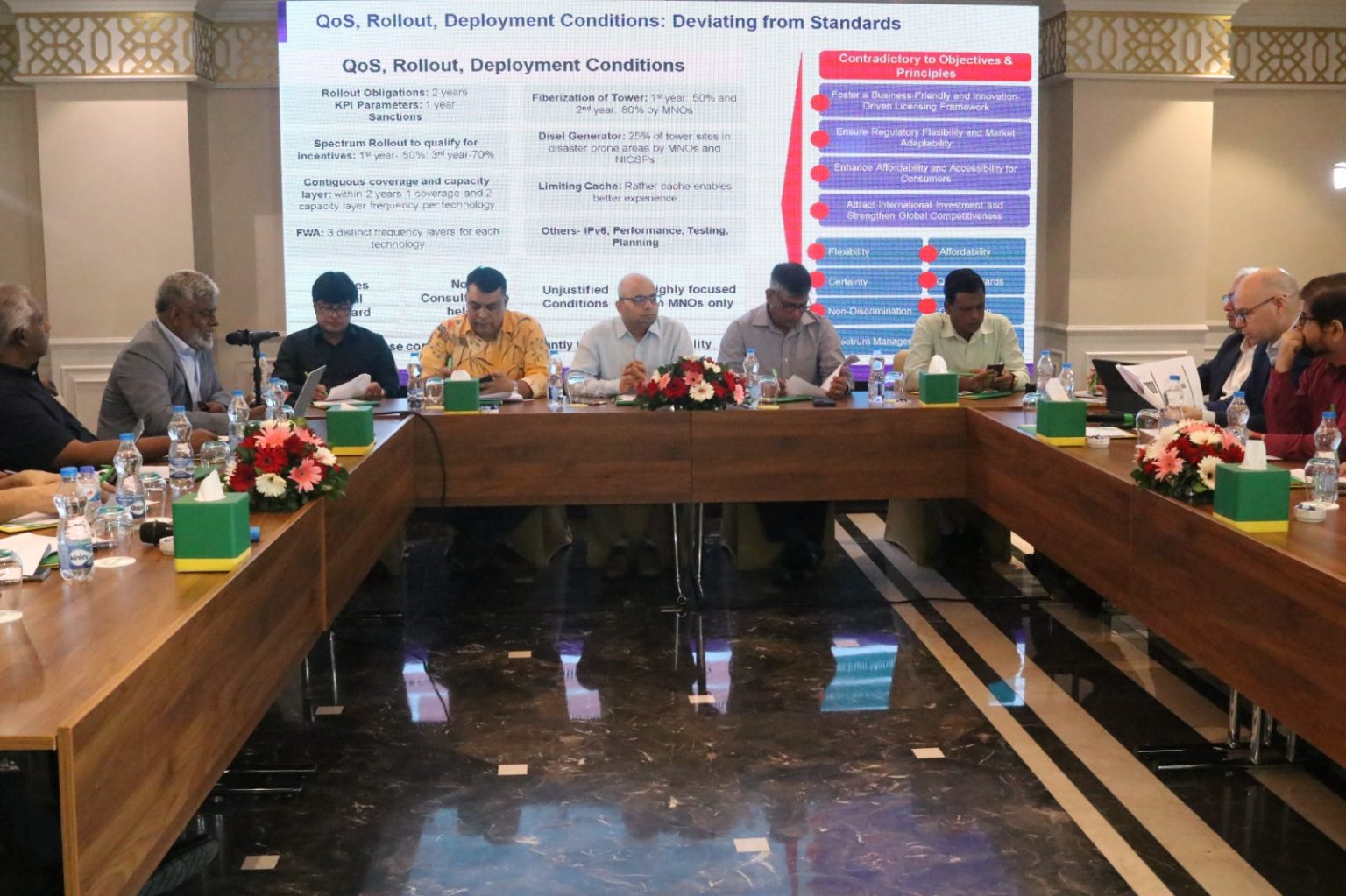The government’s new telecom policy aims to transform Bangladesh’s outdated licensing structure and ensure quality digital services for citizens through generational reforms.
Speaking at a roundtable on “Telecom Network and Licensing Infrastructure” held at Hotel Holiday Inn in Dhaka, Faiz Ahmad Taiyeb, special assistant to the Chief Adviser on Posts, Telecommunications and ICT noted it clarifying the government’s vision behind the draft policy.
The draft is now undergoing inter-ministerial vetting.
Faiz Ahmad Taiyeb described the new framework as a generational transformative policy, moving from merely expanding connectivity to building a service-oriented digital network that truly benefits people.
He noted that despite Bangladesh’s flat geography, issues like extreme population density, lack of structured urban-rural planning, and politically motivated issuance of over 3,400 licences under previous governments have hindered telecom service quality.
“This is not just another policy tweak. We are replacing a dysfunctional ecosystem with a reform agenda,” he said.
Taiyeb highlighted that an abundance of non-value-adding licence holders, some earning huge profits without meaningful investment, has been detrimental to the industry.
While mobile operators invested over Tk 12,000 crore collectively, their profitability remains negative after adjusting for inflation. In contrast, some operators with minor investments extract hundreds of crores in annual profits through toll-collector models, exploiting market loopholes.
“These entities will be phased out as their licences expire, to protect real investment and ensure genuine business transformation,” he said, “Voluntary infrastructure sharing is welcome under this policy.”
The draft policy also proposes unlocking lower frequency bands for better 4G coverage, noting that inefficient spectrum use has left coverage gaps.
Only 35% of telecom sites are currently connected via fibre, but this must rise to 80% in two years to improve service quality and climate resilience.
Over foreign direct investment (FDI), Taiyeb acknowledged the current licensing model’s failure to promote either domestic or foreign investment fairly. The new policy aims to create a level playing field where new entrants cannot be blocked under the pretext of limited licence quotas. Future licence numbers will depend on performance and obligations, he clarified.
Taiyeb also called on foreign companies’ local representatives to prioritise Bangladesh’s interests and pledged that spectrum prices would be transparently reflected in rollout costs under the new framework.
Responding to ISP concerns over bandwidth pricing, he explained that mobile operators pay hefty spectrum fees, justifying the price difference with ISPs.
“This policy is being shaped through democratic consultation with all industry players. Logical feedback is welcome. But even the best policy will fail without mutual understanding among stakeholders,” he warned.
The reform roadmap aims to foster a sustainable, citizen-centric, service-oriented telecom sector, with clear guidelines to follow post-approval. Taiyeb expressed hope that all industry players would embrace this transition for the greater good of Bangladesh’s digital future.
Stakeholders from mobile operators, ISPs, infrastructure providers and other industry representatives attended the event to share their views on the proposed changes.
Representatives from Grameenphone, Banglalink and Teletalk welcomed the policy as timely, while Robi urged stakeholders not to be confused by comparisons with policies from the previous “fascist regime.”


